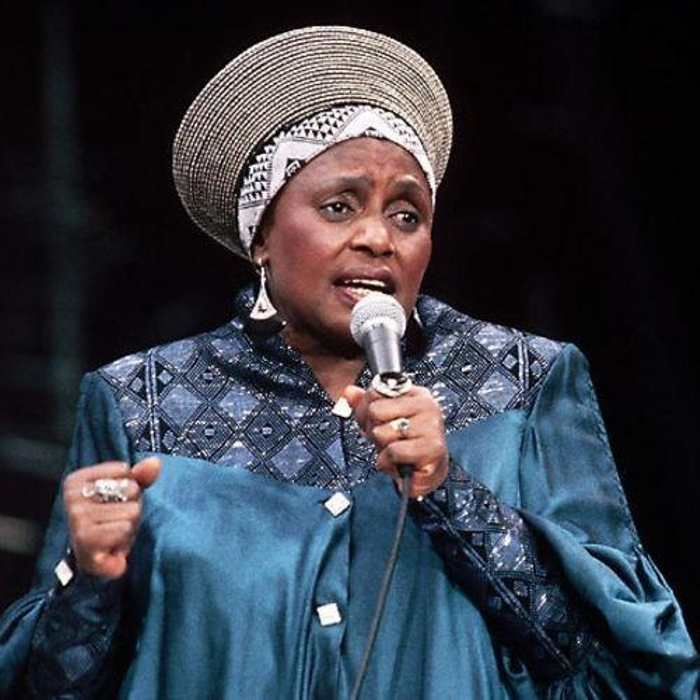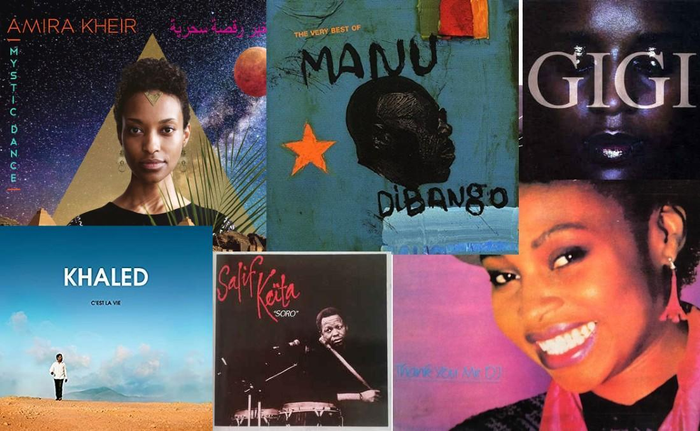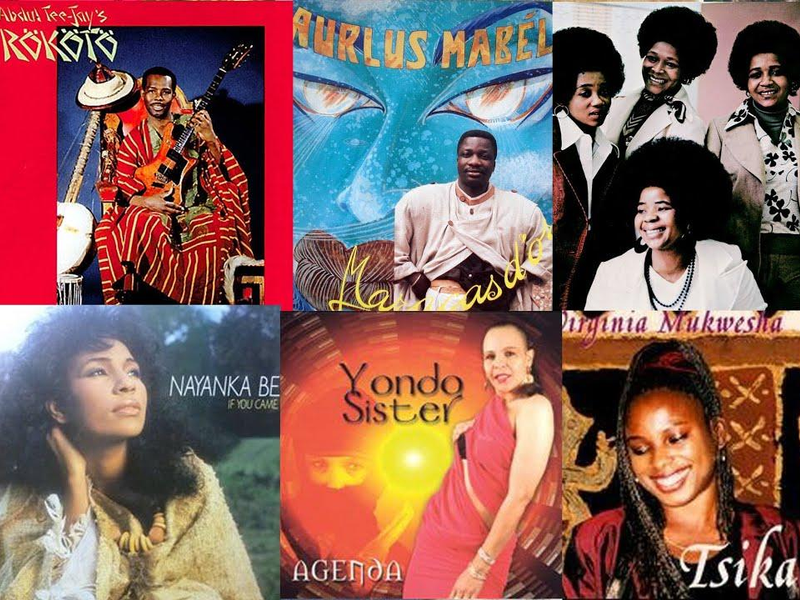African music has been an integral part of the culture for centuries, and many great musicians have emerged from the continent. From Fela Kuti to Youssou N’Dour, these artists have influenced generations of listeners with their unique sounds and styles. In this article, we look at the ten most influential African musicians of all time and explore how their legacies still shape music today.
African music has been around for centuries and has influenced many different genres of music. African musicians have made a significant impact on the world of music and have inspired many other artists. This article will look at some of the most influential African musicians.

Fela Kuti
Fela Kuti was a Nigerian singer, songwriter, and bandleader considered one of the most influential African musicians. He is best known for his Afrobeat music, with blended elements of jazz, funk, and traditional Nigerian music. Fela was a political activist who used his music to speak against the Nigerian government and its policies. He was arrested many times and spent time in prison, but he continued to make music that spoke to the people of Nigeria. Fela died in 1997, but his legacy continues through his music and the work of his sons, Femi Kuti and Seun Kuti.

Youssou N’Dour
Youssou N’Dour is a Senegalese singer, songwriter, composer, actor, and businessman. He is one of the most influential African musicians of all time. He has been nominated for nine Grammy Awards, winning two. Time magazine named him one of the 100 most influential people in the world in 2004. In 2006, he won the Polar Music Prize, given to “those who have made an exceptional contribution to the advancement of music.”

Miriam Makeba
Miriam Makeba was a South African singer, songwriter, actress, United Nations goodwill ambassador, and civil rights activist. She is best known for her African-influenced music, which she popularized worldwide in the 1960s and 1970s.
Makeba was born in Johannesburg, South Africa, on March 4, 1932. Her mother was a Swazi princess, and her father was a Xhosa chief. She began singing as a child and joined an all-female singing group called the Skylarks when she was 15. The Skylarks became one of the most popular vocal groups in South Africa during the 1950s.
In 1959, Makeba married musician Hugh Masekela. The couple moved to New York City in 1960, where they recorded an album together called The World of Hugh Masekela featuring Miriam Makeba. The album was a success and helped to launch Makeba’s solo career.
Makeba’s first solo album, Miriam Makeba (1961), featured the hit single “Pata Pata.” The song became a worldwide hit and helped to make Makeba an international star. She went on to release several more successful albums throughout the 1960s and 1970s, including African Waltz (1962), The Click Song (1964), and Keep Me In Mind (1975).
In addition to her musical career, Makeba was active in the civil rights movement. She spoke out against apartheid in South Africa and travelled worldwide to give lectures on the subject. United Nations Food and Agriculture Organization appointed her Goodwill Ambassador in 1975.
Makeba continued performing and recording music until her death on November 9, 2008, in Caserta, Italy. Her legacy continues to inspire generations of musicians and activists around the world.

Salif Keita
Salif Keita is a Malian singer, songwriter, and producer credited as one of the most influential African musicians. Born in Djoliba, Keita grew up in a musical family and to various traditional Malian music. He later moved to Paris to pursue his musical career, and it was there that he found success with his band Les Ambassadeurs du Motel de Bamako. The group’s debut album, Salif Keita & Les Ambassadeurs du Motel de Bamako, was released in 1968 and featured Keita’s distinctive vocal style and African-influenced music.
Throughout his career, Keita has released more than 20 albums and has collaborated with many other artists, including Manu Dibango, Youssou N’Dour, and Bonnie Raitt. His music fuses traditional Malian sounds with blues, jazz, and rock elements. Keita is also known for his social activism; he has been outspoken about the plight of Africa’s poor and has worked to promote peace and reconciliation in his native Mali. In 2004, he was awarded the Grammy Lifetime Achievement Award for his contributions to world music.

Thomas Mapfumo
Thomas Mapfumo is a Zimbabwean singer-songwriter and musician. He is best known for his Chimurenga song, which fuses traditional Zimbabwean Mbira music with Western rock and roll, jazz, and soul.
Mapfumo began his career in the 1960s, playing rhythm and blues in local clubs. He rose to prominence in the 1970s with his band, the Blacks Unlimited, and their hit song “Chimurenga.” The Rhodesian government banned his music, but he continued to perform and record clandestinely. After Zimbabwe’s independence in 1980, Mapfumo became one of the country’s most famous musicians. He has toured internationally and released more than 30 albums.
Mapfumo’s music is political, and he is often critical of the Zimbabwean government. In 2002, he went into exile after speaking out against President Robert Mugabe’s regime. He now resides in the United States.

Ladysmith Black Mambazo
Ladysmith Black Mambazo is a South African choral group that rose to prominence in the 1980s with its unique blend of traditional Zulu harmony singing and modern pop influences. The group has won five Grammy Awards, and T.V. shows like The Lion King and Sesame Street used their music as soundtracks. Ladysmith Black Mambazo is one of the most successful and influential African musicians.

King Sunny Ade
King Sunny Ade is a Nigerian musician considered one of the most influential African musicians of all time. His music is a mix of traditional Yoruba and modern pop, and he has been credited with helping to popularize African music worldwide. Ade has won numerous awards and accolades.
Ade was born into a royal family of the Yoruba people in Osogbo, Nigeria, in 1946. He began playing music at an early age, playing guitar and percussion. In 1967 King Sunny Ade formed his band, the Green Spots, which eventually became the African Beats. He released his first album, Juju Music, in 1982.
In addition to performing solo, Ade has also collaborated with other musicians like Carlos Santana, Ray Charles, and BB King. He has toured extensively around the world and continues to perform live today.

Angelique Kidjo
Angelique Kidjo is a Beninese singer, songwriter, actress, and activist considered one of the most influential African musicians. She has won multiple Grammy Awards and is known for her unique Afro-fusion sound. Angelique Kidjo is also an outspoken advocate for human rights and education. In 2002, she founded the Batonga Foundation to empower girls and women in Africa through education.
Angelique Kidjo has collaborated with various artists from different genres and cultures throughout her career. She has worked with Peter Gabriel, Alicia Keys, Dave Matthews Band, John Legend, and many more. In 2020, she released an album titled Celia to pay homage to fellow African artist Celia Cruz. Grammy Award-nominated The album for Best World Music Album.
In addition to her musical success, Angelique Kidjo is also an active humanitarian. In 2012, UNICEF appointed her a Goodwill Ambassador; in 2018, she participated in the #SheIsEqual campaign to end gender inequality. Additionally, in April 2020, she launched the “Agbokou” challenge, which encourages people across all walks of life to share their stories of resilience in the face of adversity.

Ali Farka Toure
Ali Farka Touré was a Malian singer-songwriter and guitarist. He is widely considered one of the most excellent musicians of all time. Traditional Mali music, American blues, and African guitar styles influence his music. He has won two Grammy Awards and was inducted into the Smithsonian Institution’s Hall of Fame.
Ali Farka Touré was born in 1939 in Timbuktu, Mali. At ten, he began playing the guitar and became proficient in traditional Malian and blues music. In the 1960s, he toured Africa with various bands, including his group, The Ali Farka Touré Band. In 1973, he recorded his first album, Ali Farka Touré (The Blue Album), which was released to critical acclaim.
Over the next few years, Touré released several successful albums, including The River (1975), Radio Mali (1978), and Savane (2006). He collaborated with well-known musicians, including Ry Cooder, Bonnie Raitt, and the Taj Mahal. In 2007, he was awarded a Grammy Lifetime Achievement Award. He died in 2012 at the age of 73.

Tiken Jah Fakoly
Tiken Jah Fakoly is one of the most influential African musicians. He is a singer, songwriter, and guitarist who has been active in the music industry since the early 1990s.
Fakoly was born in Ivory Coast and grew up in a musical family. His father was a professional musician, and his mother was a singer. Fakoly began playing the guitar at a young age and started writing songs when he was just 13 years old.
He released his first album, La Voix des Sans-Papiers, in 1998. The album dealt with the issue of illegal immigration, and it quickly gained popularity throughout Africa. In 2014, he released his second album, Dernier Appel, which included the single “Africa Stop Ebola”. The song became an anthem for the fight against the disease and helped raise awareness about the crisis in Africa.
Fakoly has won numerous awards for his work, including the Victoire de la Musique Award for Best World Music Album in 2006. He has also been nominated for Grammy Awards and has won several other prestigious music awards.
In addition to his work as a musician, Fakoly is also an outspoken political activist. He has been critical of the government of Ivory Coast and has campaigned for democracy and human rights in Africa. He currently lives in exile in Senegal due to death threats that he has received from the Ivorian government.

African music has been a source of joy and inspiration for generations worldwide. The influence of African musicians is undeniable, with many of them have left an indelible mark on the global landscape. African musicians have made their mark in history and set a high standard for future generations. We can only hope that they continue to inspire us with their music and shape our understanding of what it means to be African today.

Immanuel Burns Johnson is a young and dedicated social media personnel. He was born, raised and schooled in Lagos, Nigeria. His hobbies include traveling, sports, political criticism and mobile games like C.O.D.M. Apart from these; he is also interested in skydiving and aeronautics. He is skilled in web coding and has a trait of hard work. This has helped him become successful in his field at a young age.





